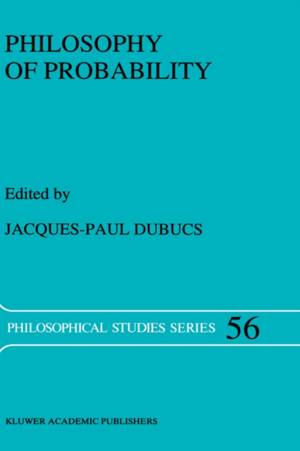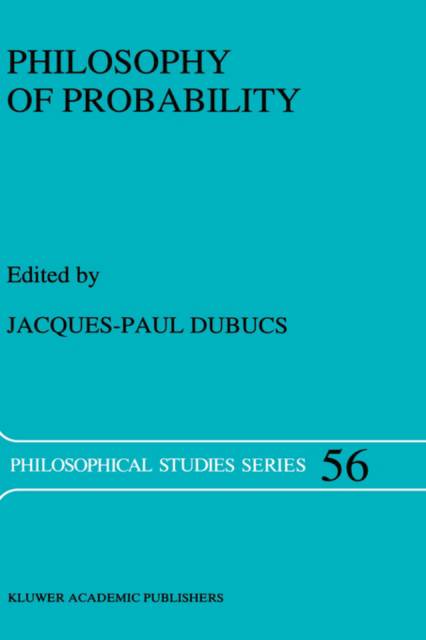
Bedankt voor het vertrouwen het afgelopen jaar! Om jou te bedanken bieden we GRATIS verzending (in België) aan op alles gedurende de hele maand januari.
- Afhalen na 1 uur in een winkel met voorraad
- In januari gratis thuislevering in België
- Ruim aanbod met 7 miljoen producten
Bedankt voor het vertrouwen het afgelopen jaar! Om jou te bedanken bieden we GRATIS verzending (in België) aan op alles gedurende de hele maand januari.
- Afhalen na 1 uur in een winkel met voorraad
- In januari gratis thuislevering in België
- Ruim aanbod met 7 miljoen producten
Zoeken
Omschrijving
Philosophy of Probability provides a comprehensive introduction to theoretical issues that occupy a central position in disciplines ranging from philosophy of mind and epistemology to cognitive science, decision theory and artificial intelligence. Some contributions shed new light on the standard conceptions of probability (Bayesianism, logical and computational theories); others offer detailed analyses of two important topics in the field of cognitive science: the meaning and the representation of (partial) belief, and the management of uncertainty. The authors of this well-balanced account are philosophers as well as computer scientists (among them, L.J. Cohen, D. Miller, P. Gärdenfors, J. Vickers, D. Dubois and H. Prade). This multidisciplinary approach to probability is designed to illuminate the intricacies of the problems in the domain of cognitive inquiry. No one interested in epistemology or aritificial intelligence will want to miss it.
Specificaties
Betrokkenen
- Uitgeverij:
Inhoud
- Aantal bladzijden:
- 296
- Taal:
- Engels
- Reeks:
- Reeksnummer:
- nr. 56
Eigenschappen
- Productcode (EAN):
- 9780792323853
- Verschijningsdatum:
- 30/09/1993
- Uitvoering:
- Hardcover
- Formaat:
- Genaaid
- Afmetingen:
- 156 mm x 234 mm
- Gewicht:
- 616 g

Alleen bij Standaard Boekhandel
+ 447 punten op je klantenkaart van Standaard Boekhandel
Beoordelingen
We publiceren alleen reviews die voldoen aan de voorwaarden voor reviews. Bekijk onze voorwaarden voor reviews.








